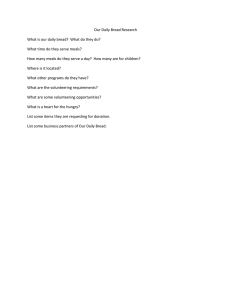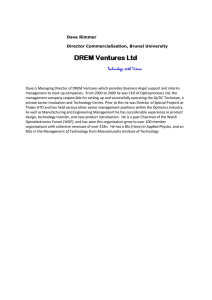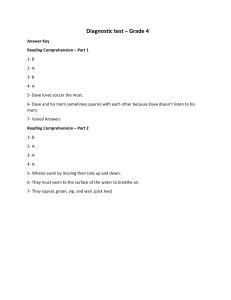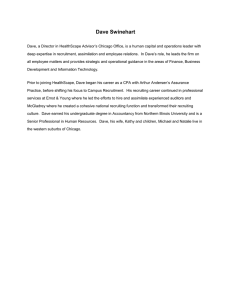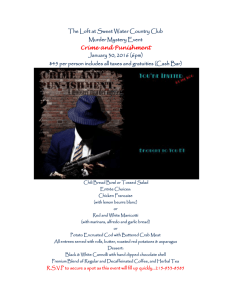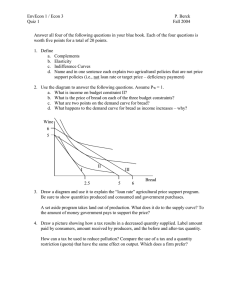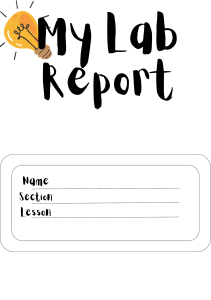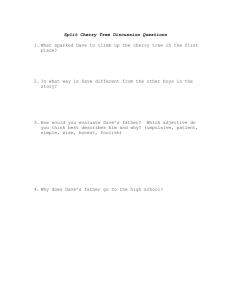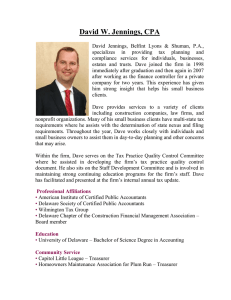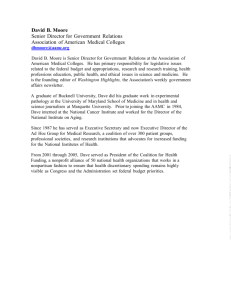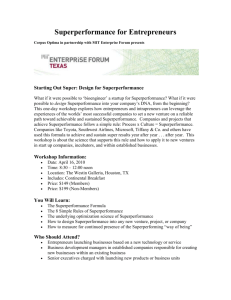Problem Set #3 (Chs.10,11,13,14) “The Choice” 8/27/12 Names of group members:
advertisement
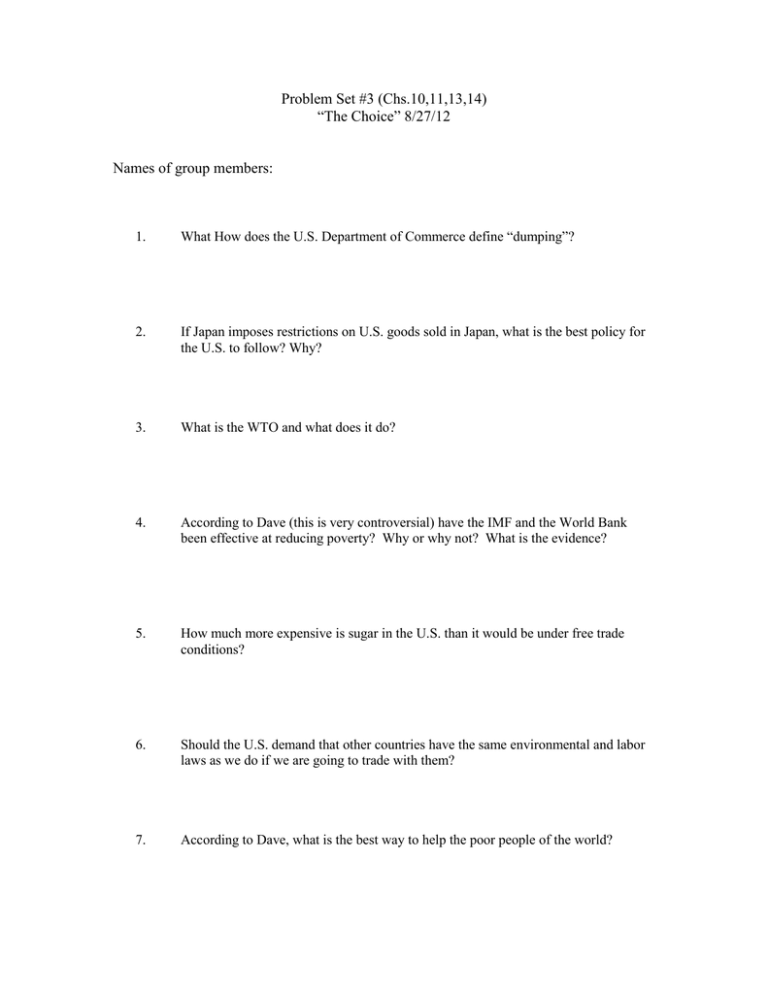
Problem Set #3 (Chs.10,11,13,14) “The Choice” 8/27/12 Names of group members: 1. What How does the U.S. Department of Commerce define “dumping”? 2. If Japan imposes restrictions on U.S. goods sold in Japan, what is the best policy for the U.S. to follow? Why? 3. What is the WTO and what does it do? 4. According to Dave (this is very controversial) have the IMF and the World Bank been effective at reducing poverty? Why or why not? What is the evidence? 5. How much more expensive is sugar in the U.S. than it would be under free trade conditions? 6. Should the U.S. demand that other countries have the same environmental and labor laws as we do if we are going to trade with them? 7. According to Dave, what is the best way to help the poor people of the world? 8. What explains why the marginal cost of production tends to rise as quantity rises (Ch.14)? 9. Is it irrational to bake your own bread? If it tastes better than store bought bread why do you ever buy bread at the store? Why not always make it at home? 10. According to Dave, should you always buy products made in America whenever they are an option? Or should you look for the best product at the best price regardless of who makes it? Why?
